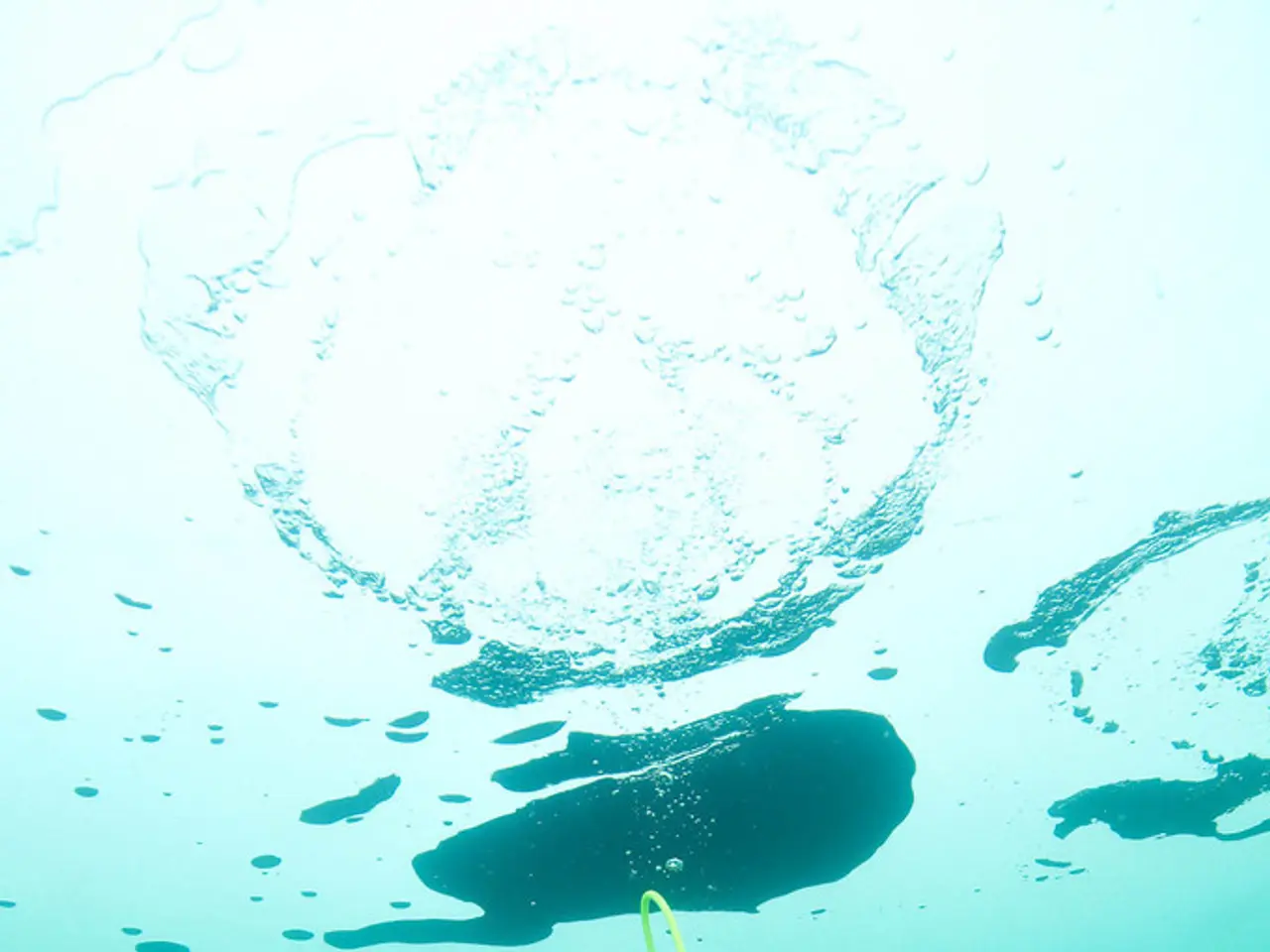Comparative Examination: Dive Site Selection - A Comprehensive Breakdown of Boat and Shore Diving Experiences
Comparing Shore Diving and Boat Diving: A Comprehensive Guide
For scuba divers, the choice between shore diving and boat diving depends on various factors such as personal preferences, experience level, and diving goals. Here's a breakdown of the advantages and disadvantages of each approach.
Shore Diving
Shore diving, being highly accessible, is ideal for those who enjoy spontaneous dives. With no boat schedules or travel needed, divers can enter the water directly from land. Shore diving typically offers diving in shallower waters (5-25m) near coastlines, coral reefs, or rocky areas. Marine life may be abundant but less diverse compared to offshore sites.
Divers of all skill levels can participate in shore diving, although it may require skills like surf entry/exit and coastal navigation. The independence from boat schedules and the unlimited dive time with flexibility make it an attractive option for budget-minded divers. However, carrying all gear from parking to the entry point can be physically demanding.
Boat Diving
Boat diving requires travel to dive sites via boat, making it less spontaneous but providing access beyond shore range. Boat diving allows access to deeper waters (10-40+m), remote, pristine sites with larger and more diverse marine life. Boat dives often visit less frequented spots with healthier coral and more wildlife.
Boat diving costs are typically more expensive due to boat operation, crew, and logistics. However, pricing can be stable year-round with various packages (single, double dives, gear rental, private charters). Boat diving offers professional guides and access to special dive experiences like drift diving or visiting historic wrecks, enhancing the adventure and safety.
Comparing the Two
| Aspect | Shore Diving | Boat Diving | |--------------------|-------------------------------------------------------------------------------------------------------------|-------------------------------------------------------------------------------------------------------| | Marine Life Encounters | Typically offers diving in shallower waters with abundant marine life but less diverse compared to offshore sites. | Allows access to deeper waters, remote, pristine sites with larger and more diverse marine life. | | Accessibility | Highly accessible as you enter directly from land; no boat schedules or travel needed. | Requires travel to dive sites via boat; scheduling depends on boat trips or charters. | | Convenience | Requires carrying all gear from parking to entry point; can be physically demanding; independence from boat schedules; unlimited dive time with flexibility. | Boat crews handle gear, tanks, and navigation; entry/exit by ladder or roll from boat; professional guidance and briefings often provided. | | Cost | Generally more cost-effective due to no boat fees and no need for chartering; reduced expenses on transport and guides. | Typically more expensive due to boat operation, crew, and logistics; pricing can be stable year-round with various packages. |
Additional Details
- Shore diving suits divers of all skill levels but may require skills like surf entry/exit and coastal navigation.
- Boat diving offers professional guides and access to special dive experiences like drift diving or visiting historic wrecks.
- Cost differences reflect boat diving's premium for remote and deeper site access, while shore diving remains budget-friendly and flexible.
- In places like Curaçao or Sydney, boat diving vastly expands the quality and quantity of marine life encounters compared to shore diving.
- Many dive centres offer private guided shore dives specifically designed for skill building and confidence development.
- Divers should consider their preferred subjects when choosing between boat vs shore diving, as each environment provides unique photographic opportunities.
- Environmental stewardship considerations affect both boat vs shore diving choices, with shore diving generating minimal carbon emissions through reduced travel requirements.
Ultimately, the decision between boat vs shore diving depends on balancing multiple factors, including experience level, budget constraints, marine life interests, and practical considerations. Consider starting with guided experiences in both environments to discover which style resonates with your interests and capabilities, then develop your skills and explore the diverse underwater world that scuba diving reveals.
[1] Source: DiveAdvisor [2] Source: Dive.com [3] Source: DivePlanit
- Shore diving, offering spontaneous dives without boat schedules, is a popular choice for divers, especially near coral reefs or rocky areas.
- Marine life in shore diving is abundant but less diverse compared to offshore dive sites accessible via boats.
- Divers of all skill levels can participate in shore diving, provided they have skills like surf entry/exit and coastal navigation.
- The budget-friendly shore diving allows divers to carry their own gear, but it can be physically demanding due to transportation.
- Boat diving, requiring travel to dive sites via boats, provides access to deeper waters and remote, pristine sites with a wider variety and larger marine life.
- Professional guides and special dive experiences like drift diving or visiting historic wrecks are offered in boat diving, enhancing the adventure and safety.
- boat diving is typically more expensive due to boat operation, crew, and logistics, but pricing can be stable year-round with various packages.
- Shore and boat diving compare regarding marine life encounters, accessibility, convenience, and cost.
- Shore diving requires skills like surf entry/exit and coastal navigation, while boat diving crews handle gear, tanks, and navigation.
- For environmental stewardship, shore diving has the advantage of generating minimal carbon emissions due to reduced travel requirements.
- In places like Curaçao or Sydney, boat diving offers a far better quality and quantity of marine life encounters compared to shore diving.
- Many dive centres provide private guided shore dives specifically designed for skill building and confidence development for beginners.
- Underwater photography enthusiasts should consider their preferred subjects when choosing between boat vs shore diving, as each environment offers unique photographic opportunities in the ocean and marine life.




